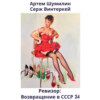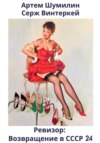Читать книгу: «Whoso Findeth a Wife», страница 14
“Of what?”
“Of the identity of the murderer,” I said. “She declared to me, times without number, that she would never rest until she had unravelled the mystery.”
“Her theory was a very wild one,” he laughed. “Personally, I do not entertain it for one moment. The medical opinion that he died from a sudden but natural cause is undoubtedly correct,” he said, replacing his dead cigar between his lips, as, slowly striking a vesta, he re-lit it. Then he added, “Her anxiety to avenge Dudley’s death certainly seems to bear out your suspicion that they were lovers.”
“Then you entirely agree with me?” I cried.
“In a measure only,” he answered, his voice suddenly harsh and cold. “I have no suspicion that she ever reciprocated his affection, although in seeking to learn the truth of your friend’s tragic end she must have had some very strong motive.”
“Another fact I also discovered was a trifle curious,” I observed, after we had strolled along the deserted Terrace from end to end, discussing the details of Dudley’s death, and the manner in which it had affected her.
“What was it?” he inquired, glancing towards me.
“I found that she was in the habit of visiting every day a pretty Russian girl with whom I was acquainted.”
“Before marriage?” he asked, raising his eyebrows meaningly.
“Yes,” I answered. “She was a refugee, and I had been enabled to render her father a service some time before; therefore we had become friends. I had lost sight of her for a long time, and when I again met her I discovered that she had not only been an intimate friend of poor Dudley, but that Ella visited her frequently on her bicycle when she was supposed by her mother to be riding in the Park.”
“Was there anything remarkable in that fact?” he inquired, with a half-amused air, nevertheless regarding me with undue keenness, I thought.
“Nothing, except that the little Russian, who, having lost her father, was living a lonely life in a rather large house in Kensington, warned me against Ella, telling me she was my enemy. She, however, left without fulfilling her promise to reveal the details.”
“Your enemy!” he cried, laughing jocosely. “She was evidently jealous of your attentions to her, my boy. A Russian, too! She was a Nihilist, I suppose, or some interestingly romantic person of that sort, eh? Surely you didn’t heed what she said, did you?”
“Of course not,” I replied, with a forced laugh. “I loved Ella too well; so I married her.”
“And you now regret it,” he added abruptly.
Without replying I walked on by his side, smoking furiously. My object in seeking him had been to learn what I could of Ella’s past, but no mysterious incident had, to his knowledge, occurred. Her family were well-known in Yorkshire, respected throughout the county, and no breath of scandal had ever besmirched the fair fame of either Robert Laing’s widow or his daughter. Beck, their intimate friend, concealed nothing from me, but frankly discussed my hopes and fears, expressing his heartfelt sympathy that I should have thus mysteriously lost my well-beloved, and offering me all the assistance that lay in his power.
“It certainly is extremely curious that Mrs Laing should have left Pont Street without sending me a letter to the club, giving me her new address,” he said calmly, after reflection.
“You have not, then, heard from her?”
“No, I have had no letter. A week before I left for South Africa I dined there, and she then told me that she intended to remain in England throughout the year. She expressed the greatest gratification that Ella had married so happily, and seemed in the best of spirits. Yet a few days later, it appears, she fled as secretly as if she had been a criminal. It is really very extraordinary; I can’t account for it in the least.”
“All effort to trace Ella has failed,” I observed gloomily, after a moment’s reflection.
“Whose aid have you sought? A private inquiry agent?”
“No. The police,” I answered.
“Police!” he exclaimed, surprised. “They have committed no crime, surely. I – I mean that the police do not trace missing friends.”
“They will carry out the orders of any Government Department,” I answered. “The request came from my chief.”
“From Lord Warnham! Then you have told him!”
“Of course,” I responded.
In contemplative silence he slowly blew a great cloud of smoke from his lips. Then he said, “There is one thing you haven’t told me, Geoffrey. What was the name of this pretty Russian who made these mysterious allegations against Ella?”
“Her name was Sonia Korolénko.”
“Sonia Korolénko!” he cried in a voice strangely hoarse, halting and glaring at me with wide-open, staring eyes. “Sonia! And she has gone, you say?”
“Yes. She has returned to Russia, I believe. But what do you know of her?” I quickly inquired.
“Nothing. I merely know her by repute as a notorious woman, that’s all,” he answered. “You were certainly wise to discard her allegations.”
“Is she such a well-known person?” I asked.
“I should rather think so,” he answered, elevating his eyebrows. “Her fame has spread all over the Continent. She was leader of a certain circle of questionable society in Vienna a year ago, and narrowly escaped falling into the hands of the police.”
“But what can have induced Ella to associate with her?” I exclaimed in wonderment.
“Ah! That is more than we can tell,” he answered, in a tone of sincere regret. “The ways of women of her type are ofttimes utterly incomprehensible.”
“Were you aware that Ella was acquainted with her?” I inquired earnestly.
At that moment, however, the electric gongs along the Terrace commenced ringing sharply, announcing that the House was about to divide. The division was upon an important amendment, and had been expected at any moment since the dinner-hour. Turning back quickly he hurried through the tea-room along the corridor, and shaking hands with me in haste, promising to resume our conversation on another occasion, disappeared to record his vote.
For a single instant I stood alone in the Lobby, watching the receding figure of the portly man of the hour, and pondering deeply. Then, full of gloomy recollections of the past, I turned on my heel and went out through the long, echoing hall.
Chapter Twenty Six
A Mission and its Sequel
“You fully understand the position, Deedes?”
“Absolutely,” I replied.
“Well, this is your first mission abroad – a secret one and most important – so do your best, and let me see how you shape towards being a diplomatist. Remember you have one main object to bear in mind, as I have already told you; and further, that the strictest secrecy is absolutely necessary.”
It was the Earl of Warnham who thus spoke gravely as we stood opposite one another in the private room of the Minister in attendance at Osborne. Between us was a large table littered with state documents, each of which Her Majesty had carefully investigated before appending her firm, well-written signature. Late on the previous night I had travelled to the Isle of Wight in response to a telegram summoning me and my chief, who, after three rather protracted audiences of Her Majesty during the morning, had instructed me to proceed at once to Paris, entrusting me with a secret mission. Lord Gaysford, the Under Secretary, would undoubtedly have gone, but as he was away in Scotland attending some election meetings, and as time was pressing, I had, much to my gratification, been chosen. My mission was a rather curious one, not unconnected with Her Majesty’s personal affairs, and the instructions I had to deliver to the Marquis of Worthorpe, our Ambassador to the French Republic, were of such a delicate nature that if written in a formal dispatch would, the Earl feared, cause that skilled and highly-valued diplomatist to send in his resignation.
I had therefore been chosen to put a suggestion politely to his Excellency, and at the same time deliver the Earl’s instructions with deference, yet so firmly that they could not be disregarded. Mine was certainly a difficult task, nevertheless in my enthusiasm at being chosen to execute this secret mission abroad I was prepared to attempt anything, from the settlement of the Egyptian Question to the formation of a Quadruple Alliance.
“I shall carry out your instructions to the best of my ability,” I assured him, after he had given me various valuable hints how to act.
“Yes,” the aged Minister said, slowly gathering the tails of his black broadcloth frock coat over his arms and thrusting his hands into his pockets, “cross from Newhaven to-night, and you can see Worthorpe at noon to-morrow. Tell him to give you an interview alone; then explain what I have told you. He must obtain an audience of the President some time to-morrow.”
“I shall act as discreetly as possible,” I declared.
“I feel sure you will, Deedes,” he exclaimed, with a look more kindly than usual. “This mission will, I hope, lead to others, further afield, perhaps. But remember that you were once victimised by a spy; therefore exercise the greatest care and caution in this and all matters.”
“I certainly shall,” I answered, smiling; then, after the further discussion of a point upon which I was not perfectly clear, I wished my chief adieu.
As I passed out of the room he said, —
“Put up at the Continental. If I have any further instructions, I’ll wire in cypher.”
“Very well,” I replied, and as I went forth I met on the threshold a servant in the royal livery who had come to summon the trusted Minister to another audience with his Sovereign.
Eager to fulfil my mission to the satisfaction of the eccentric old statesman, who, if to others was a martinet, was to me a firm and sympathetic friend, I at once set out, crossed to Dieppe that night, and duly arrived in Paris next day. Shortly before noon I presented myself at the handsome official residence of the British Ambassador, and was quickly ushered into his presence. We were not strangers, having met on several occasions when he visited London and called to consult the chief; therefore he welcomed me cordially when I entered his private room. The Marquis was a tall, brown-bearded, pleasant-faced man, who had graduated in the Constantinople and Vienna schools of diplomacy before being appointed Ambassador in Paris, and who had achieved considerable reputation as a skilled negotiator of the most delicate points.
Seated opposite one another in softly-padded armchairs, we chatted affably for perhaps a quarter of an hour. First, he inquired after our chief’s health, and then endeavoured to ascertain from me the policy about to be pursued towards Russia in view of our recent strained relations, but I strenuously avoided answering any of his artfully-concealed questions. A dozen times, with that consummate tact acquired by a lifetime of diplomacy, he endeavoured to get me to hazard an opinion or express a doubt, but I always refused. Lord Warnham’s instructions were that I should say nothing of those affairs of State which, in my capacity of private secretary, were well-known to me, hence my determination to maintain silence.
Presently the Marquis smilingly exclaimed, “Lord Warnham has evidently taught you the first requisite of the successful diplomatist – namely, secrecy. You’ve borne well the test I have applied, Deedes. By the same questions I have just put to you I could have learnt just what I wanted from half the diplomatic circle here in Paris, yet you have fenced with me admirably. I shall not omit to mention the fact to Lord Warnham when next I call at the Foreign Office.”
I thanked his Excellency, adding, with a smile, “One learns the value of silence with our chief.”
“Yes,” he answered, slowly tapping his table with a quill. “He’s a curious man, extremely curious. His very eccentricity causes him to be feared by every Cabinet in Europe. Is he really as impetuous and strange in private life as he is in public?”
I paused, looking fixedly into my companions dark eyes.
“The object of my visit, your Excellency, is not to discuss the merits of my chief or the policy of the Home Government, but to make a suggestion which he has desired me to place before you with all deference to your wide experience as Ambassador, and your unequalled knowledge of the French people,” I said gravely, and then, clearly and succinctly, I placed before him the Earl’s ideas, together with the instructions he had entrusted me to deliver.
At first the Ambassador, resenting my interference with his actions, seemed disinclined to entertain the suggestions; but using the arguments my chief had advanced, I at length induced him to view the matter from the same standpoint. I even obtained from him what was practically an admission that the policy he had pursued in the past regarding the question under discussion was not altogether sound, and once having obtained that, I felt confident of gaining my point without any unpleasant incident. From that moment, indeed, he recognised that I bore a message from the chief, therefore he treated me pleasantly, and announced his intention of seeking an audience with the President of the Republic at the Elysée at four o’clock, to enter upon negotiations which Her Majesty earnestly desired should be carried forward without delay.
Although the Marquis treated me with calm, unruffled dignity, as befitted the Ambassador of the greatest nation on earth, I nevertheless congratulated myself that my efforts had been eminently successful. Aided by the promptings of the shrewd old Earl, I had, I flattered myself, exercised a careful and even delicate tact in dealing with this leader among diplomatists, and, as may be imagined, the knowledge that my mission was successful caused me the utmost satisfaction.
When I had first approached the subject he had been inclined to disregard my words, and grew so angry that I feared lest he might tender his resignation, as the Earl had apprehended. But the Minister’s clever arguments, rather than my own tact, convinced him, for he saw that to act at once was imperative; hence the success of my first secret mission.
We sat together for nearly an hour calmly discussing the matter from various standpoints, and when we rose his Excellency again congratulated me upon the soundness of my views, laughingly declaring that, instead of penning the Earl’s impatient and irritating dispatches, he ought to appoint me to a post abroad.
Full of elation, I descended the broad stairs, so thickly carpeted that my feet fell noiselessly, and met unexpectedly, a few moments later, my friend Captain Cargill, of the 2nd Life Guards, the junior Military Attaché, who greeted me with a hearty British hand-grip.
“Didn’t expect to meet you here, old chap,” he cried. “I thought you were tied up in the chief’s private room always, and never allowed out of England.”
“This is the first time I’ve been here officially,” I replied, laughing.
“What’s the trouble? Anything startling?” he inquired.
“No, nothing very extraordinary,” I remarked, carelessly. “I’ve seen the Marquis, and concluded my mission.”
Continuing, I extracted from him a promise to dine with me at the Continental that evening, as I intended to leave next day, and after a brief conversation we parted. Along the shady side of the Rue du Faubourg St Honoré I strolled leisurely, turning into the Rue Royale, passing the gloomy façade of the Madeleine, and continuing along the boulevard to the Grand Café. Paris possessed but little attraction for me in my gloomy frame of mind. Five years of my youth had been spent there, and I knew the city in every mood, but to-day, plunged as I was in a debauch of melancholy, its gay aspect under the warm sunshine jarred upon me.
On leaving the Embassy it had occurred to me to call upon an old friend, who, in my student days, had shared rooms with me, but who had been returned as Deputy at the last election, and now lived in the Rue des Petits-Champs. With that object I had walked along mechanically, and instead of turning down the Rue des Capucines, as I should have done, I had found myself in the Place de l’Opéra. Then, seating myself at one of the tables in front of the Grand Café, I ordered a “bock,” and contemplatively watched the crowd of passers-by.
When last I had sat at that spot it was with Ella, on the night before we had returned to London from our honeymoon. Well I remembered how happy and content she had then been; how she had enjoyed the light, cosmopolitan chatter about her, and how fondly we had loved each other. In those days she had mingled tender words with her kisses, which seemed to bear my soul away. Yet how weary and full of terrible anxiety had been the nine months that had elapsed since that delightful autumn night, the last of our lazy tour through rural France. When I reflected upon all the remarkable occurrences, they seemed like some hideous nightmare, while she herself appeared striking, yet mysterious, as the fair vision in some half-remembered dream.
Thus was I sitting alone at the little marble-topped table, gazing into space, wondering, as I did daily, how my lost wife fared, and whether she ever gave a single passing thought to the man who, notwithstanding all her faults and follies, loved her better than his life, when before my eyes there arose for a second a face that in an instant was familiar.
A man, short of stature and well-dressed, had lounged leisurely by with a cigarette, but scarcely had he walked a dozen yards beyond the café when I jumped up, and rushing along, accosted him.
It was Ivan Renouf.
He turned sharply at mention of his name, regarding me with an inquiring glance, but next second expressed pleasure at our meeting. Together we returned to the café, and chatted amicably over a mazagran. Presently, after we had been speaking of our last interview at Mrs Laing’s, I asked him the truth about his sudden dismissal from her service.
“What your wife told you was quite correct,” he answered, with a mysterious smile; “I was detected.”
“You are generally too wary to be caught by those upon whom you are keeping observation,” I remarked.
Slowly he selected a fresh cigarette, and laughing carelessly, answered, —
“It was not by accident but by design that I was caught. My object was already attained, and I desired to be discharged at once from madame’s service.”
“She left London almost immediately,” I said.
“Yes, I am quite aware of that. It was best for her,” he observed, rather abruptly.
“My wife also fled on the same day,” I exclaimed slowly. “I haven’t seen her since.”
At this announcement he betrayed no surprise, but merely remarked, “So I have heard.”
“Tell me,” I urged earnestly, “do you know anything of her movements? I am endeavouring to find her, and am in utter despair.”
With a sharp glance at me, the great detective stirred his long glass, raised it to his lips, and took a deep draught. Then, slowly replacing it upon the table, he coldly answered, —
“I know nothing of your wife’s whereabouts, m’sieur.”
“Am I to understand that you refuse to tell me anything?” I asked, annoyed.
He shrugged his shoulders, but answered no word. I detested him instinctively.
“Is it not strange that they should both have fled in this extraordinary manner?” I suggested. “Can you assign any motive whatever for their flight?”
“I am really not good at conundrums,” he replied indifferently. “But if you took my advice, m’sieur, you would abandon all thought of her, for at least one fact was quite plain, namely, that mademoiselle never loved you.”
“How do you know that?” I cried, with sinking heart, as the ghastly truth was forced upon me for the thousandth time.
“From my own observations,” he answered, looking straight at me across the table. “Your marriage was, I am fully aware, an unhappy one; therefore you should regard it entirely as of the past. She will never trouble you again, I can assure you.”
“Why?” I demanded. “Your words indicate that you are fully aware of the true facts. Tell me all, Renouf, and set my mind at rest.”
“I have told you all, m’sieur,” he said, suddenly tossing his cigarette away, glancing at his watch and rising. “That is, I have told you all that I may. But I have an appointment,” he added abruptly. “Adieu.”
And before I could prevent him he had raised his hat with a show of politeness, and walked hurriedly off across the broad Place in the direction of the Boulevard des Italiens.
In chagrin I bit my lip, for instead of giving me any clue to the hiding-place of my errant wife, his words only tended to increase my mistrust and despair. Was not, however, his refusal only what I might have expected? I rose and slowly walked away down the Rue Auber, deeply reflecting upon his denunciation of Ella’s faithlessness. What motive could he have, I wondered, in thus declaring that she had never loved me?
That night Cargill dined with me, and after taking our coffee and liqueurs in the courtyard of the Continental, watching the well-dressed crowd of idlers who assemble there nightly after dinner, we strolled out along the brightly-lit streets, where all Paris was enjoying the cool, star-lit evening after the heat and burden of the day.
Our footsteps led us unconsciously to that Mecca of the Briton or American resident in Paris, the Hôtel Chatham, and entering the American bar we found assembled there a number of mutual acquaintances. At one of the small wooden tables sat my old and valued friend, Henry Allender, counsel to the United States Embassy in Paris, a man universally liked in both British and American colonies of the French capital, and opposite him a short, stout, round-faced Frenchman, attired in grey, and wearing the Legion of Honour in his lapel – Monsieur Goron, the well-known Chief of Police. From both I received a cordial welcome, and as we sat down to chat over cocktails carefully mixed by the deft, loquacious bar-tender, Tommy, I took up Le Monde Illustré, lying upon the table, and opened it carelessly.
Several pages I had turned over, when suddenly my eyes fell upon a full-page illustration of a beautiful woman in evening dress, with a fine diamond tiara upon her head. The features were unmistakable. With an involuntary cry that startled my companions, I sat rigid and motionless, glaring at it in abject dismay.
The portrait itself did not surprise me so much as the amazing words printed beneath. The latter held me spellbound.































